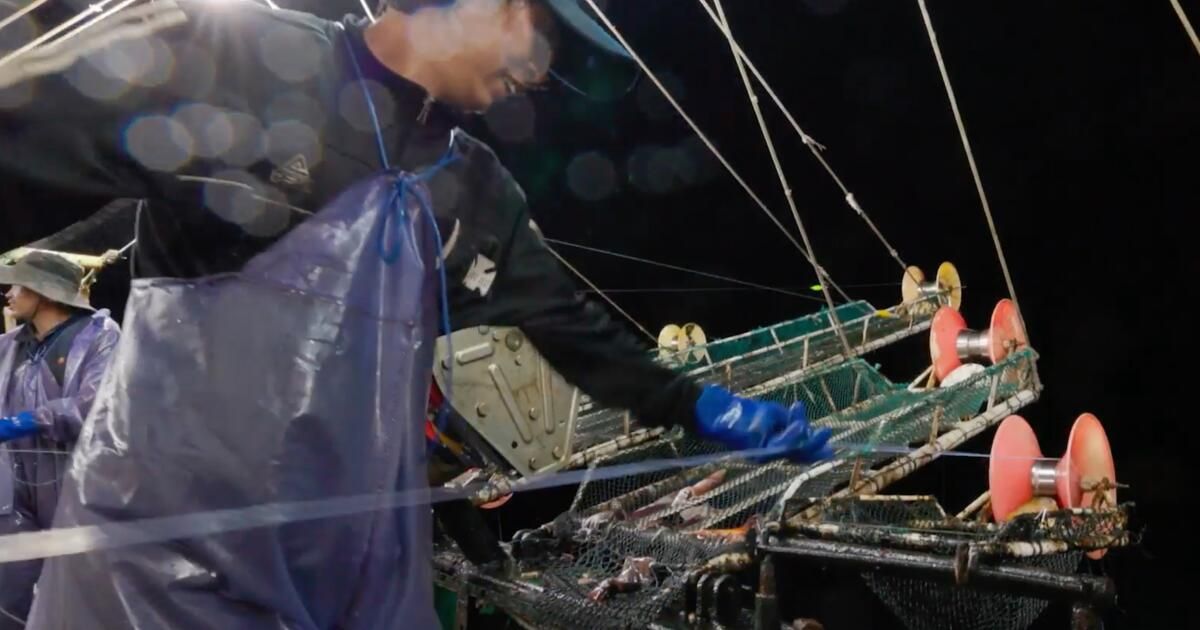Do you like cod, shrimp, salmon, crab or haddock (also known as fish fingers)? Of course. Do you buy fish at Walmart, Costco, Kroger or Albertsons? Who does not? Do you eat at one of the more than 400,000 restaurants offered by food distributor Sysco? Almost certainly.
If so, you have probably been served or sold seafood caught by Indonesian victims of forced labor on Chinese ships or processed in China by Uyghurs, a cultural, racial and religious minority facing systematic repression. Some 79% of seafood sold In the United States it is imported, according to the latest data from the National Oceanic and Atmospheric Administration. Only China supplies almost 10% of US seafood imports.
Chinese-owned and flagged vessels are the largest distant water fishing fleet in the world. This fleet includes approximately 6,500 boats and fishes in all oceans. To put this fleet in context, neither Japan nor the United States have more than 1,000 ships of this type.
Some of these distant water vessels remain at sea for up to two years, transferring their catches to other vessels to take to port. The living and working conditions of workers trapped on board are often appalling, with inadequate medical treatment, poor nutrition and incessant, dangerous work day and night.
An abundant and well-managed ocean could feed a billion people a healthy seafood meal every day, forever. Overfishing, especially by large industrial fleets, is destroying that abundance, collapsing a wild food resource essential to the health and livelihoods of hundreds of millions of people along coasts around the world.
A four-year investigation into distant-water industrial fishing by the Outlaw Ocean Project, published this week in the Los Angeles Times, uncovered evidence of human rights abuses and violent, deadly conditions. These conditions, tolerated in an industry that puts food on American tables, demand immediate action.
There are several policy changes that would alter the practices of the world's fishing fleets and affect the abundance of our oceans.
For example, the World Trade Organization should stop allowing countries to subsidize overfishing of our oceans. These harmful subsidies promote overfishing by allowing fleets to fish longer, more intensely, and farther than would otherwise be economically viable. The United States should deny countries access to the U.S. market unless imported seafood is accompanied by documentation showing that it was obtained completely free of forced labor.
Another major change would be for the United States to extend mandatory disclosure of country-of-origin labeling for seafood beyond grocery stores, to restaurants, small markets and cafes. All countries whose vessels fish on the high seas or in foreign waters should be required to publish data on which vessels are authorized to fish what, where and when, and tracking of these vessels should be publicly available.
While changes to international regulations may be more difficult, improvements to U.S. seafood standards could be adopted more quickly. For example, President Biden could require that all seafood sold in the U.S. be subject to traceability from ship to plate, ensuring they are safe, legally caught, responsibly sourced, and properly labeled.
Meanwhile, American consumers will have to be more selective about the seafood they buy. He Monterey Bay Aquarium Seafood Viewing Guide can help guide buyers toward environmentally sustainable options, such as those that are well managed and responsibly caught or grown. The best options tend to be locally caught or farmed American seafood. Making informed decisions about the seafood you buy may seem like a small step, but even this can make a big difference.
Andrew Sharpless is CEO of Oceana, an international organization focused on ocean conservation.












